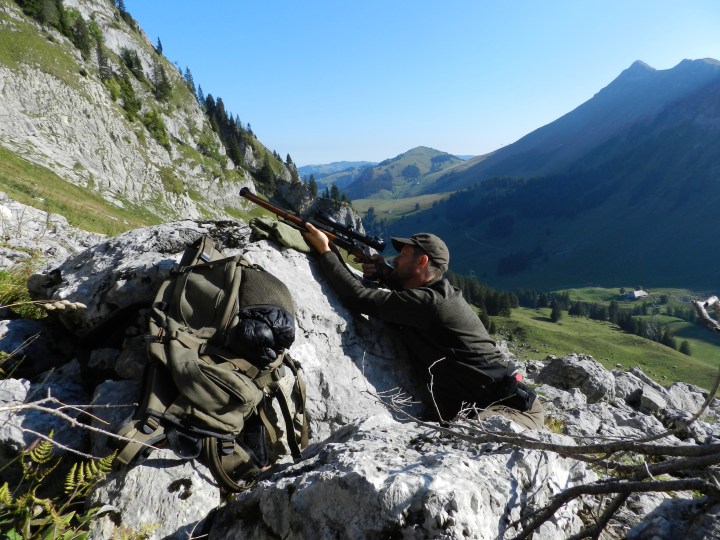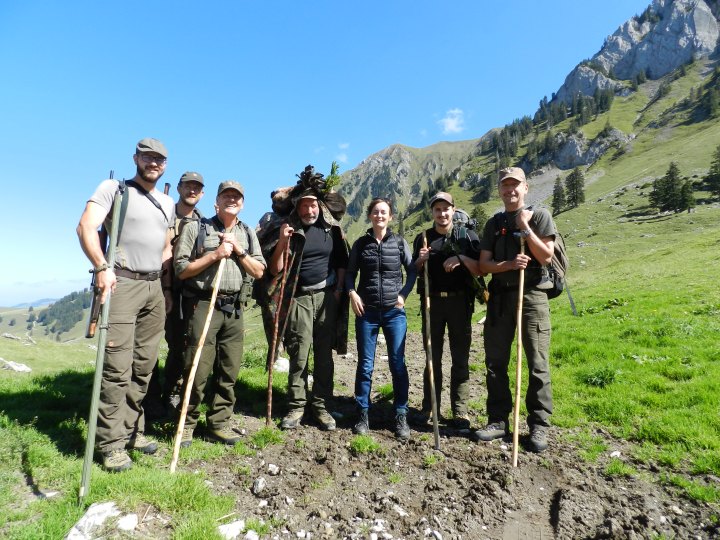
My New Year’s resolution this year was to give up meat. With great effort and a handful of staple dishes, I managed to get through January meat-free. My quest has gone steadily downhill since then and I am now back where I started, eating meat roughly every second day and feeling uneasy about it. Part of the problem is that the rest of my family are not yet converted, so I still have to cook for four meat eaters. There’s only so many times I can reheat my lentil stew and watch them eat lasagne (I make a very good lasagne).
To be accurate, I never aimed to be a pure vegetarian. Ideally, I would like to eliminate meat from my own cooking while being relaxed about eating a meat dish as a guest at someone else’s table. But by not taking a hard line, I’ve been too open to making other exceptions. Classic slippery slope.
My motivation to stop eating meat mainly stems from conscientious objection to the meat industry. I just wish I was more conscientious about it. When I think about the cruel and unnatural conditions animals must endure in large-scale farming and the way they are slaughtered, I feel I cannot be complicit. I’m also swayed by the environmental arguments and, to a lesser extent, the health benefits.
But why is it proving so difficult to give up just one of many foodstuffs? Meat eating is just a habit, not an addiction, even if I did grow up in a strong meat-eating culture.
A lot of people grapple with this issue in young adulthood but my twenties came and went without me seriously considering vegetarianism. I was always too hungry and in too much of a hurry chasing other goals. But that’s a long time ago now. I can’t believe it’s taken me so long to face up to this basic moral choice. And I can’t believe what a lousy job I’m doing at sticking to that choice.
In my reasoning, and some vegetarians will disagree strongly, the problem is not the fact that an animal dies to feed me, the problem is how the animal lives and dies. The forced breeding of billions of animal lives in miserable warehouse conditions to produce meat is an ugly reality. The more traditional small-scale farming model is obviously more acceptable, and one thing you see in Switzerland is a lot of contented cows ambling about in beautiful, big fields. Pigs and chickens suffer behind closed doors, unfortunately. But no matter how pretty the farm, when the time comes, the animals still have to be transported to be slaughtered en masse. Back to my original sticking point of not wanting to be complicit in a horrible, distressing death.
But what if there was such a thing as a good life and a clean death for an animal? It turns out this ideal does exist and there is a group of people dedicated to making it possible, Swiss hunters. Though it’s a hugely popular pastime here, hunting has always been alien to me. Now, as part of this whole thinking process around the ethics of eating meat, I have become more curious about hunting. So much so, that I was inspired to go on a hunting expedition and write an article about it.
The autumn hunting season is currently in full swing and game features on the menu of Swiss restaurants everywhere, from the hushed dining rooms of Michelin Star restaurants to the loud and crowded supermarket canteens. The most popular meat is venison and it is served with an array of mouth-watering side dishes, including glazed chestnuts, Späzle dumplings, Brussels sprouts, red cabbage, poached pear and cranberry sauce. About a third of the game eaten in Switzerland comes from domestic hobby hunters but the demand is so high that most of the meat has to be imported.
Up until last month, you could fit everything I knew about hunting onto a beermat. I certainly didn’t see the attraction of stalking and shooting an animal. As an activity, it seemed a bit selfish and unnecessary. When I go walking near my home, I sometimes catch sight of chamois (a kind of goat antelope native to the Alps) and deer and it makes my day. Why would you want to hurt those lovely creatures?
This was more of a superficial, city girl reaction. Of course I have heard of culling and how it is necessary to keep wild populations at sustainable levels to protect biodiversity. And I know humans started out as hunter gatherers. Children don’t play chasing and hide-and-seek for no reason. Hunting is in the blood. I just didn’t think it was in my blood.

Well, I was wrong. The day I spent hunting chamois was completely different and more exciting than most other days I’ve spent in the great outdoors. It beats skiing, paragliding (OK, I’ve only done a tandem jump once) and hiking. And I didn’t even carry a gun! All I did was trek around the place, look through binoculars a lot, and watch animals. I was with a party of eight hunters who split up for the day and only one of the eight shot a chamois. Yet everyone had a great time because we were all there with a purpose. I discovered that you don’t need to shoot something yourself to feel the thrill of the chase.
It felt OK to me because the chamois that was shot was killed instantly and was sold to a restaurant. And then there’s the context in which the hunt was happening. Hunting is tightly regulated in Switzerland, and I think this is a good thing. They don’t just let any fool go out with a gun. You have to go through a two-year training programme to get your hunting licence, and then pass an annual shooting test. The cull numbers are carefully controlled (15 per cent of the herd) and hunters who apply are allocated a small number of animals to shoot, age and sex specified. They have to put a date tag on their kill and show it to a wildlife inspector the same day.
The hunters aim for the side of the chest, just under the leg, to kill with one shot. Some butcher the carcass themselves and keep the meat, the rest sell directly to butchers or restaurants but the money they make does not cover the licence costs. For these men – and some women, the proportion is growing – hunting is a way of life.
There are two hunting systems in Switzerland. In most cantons, the hunting period for the ‘better’ animals – red deer, roe deer and chamois – is limited to a few weeks in the autumn. Smaller animals, fowl and wild boar have a longer hunting season.
Swiss hunters tend to be members of clubs. In the non-hunting months, they spend a lot of time involved with the animals – saving fawns from combine harvesters during the mowing season (the little ones tend to hide in the long grass when they get scared), delivering hay to feeding points in the winter, doing forest maintenance and lots of observing to see the condition, whereabouts and numbers of the animals.
The hunters are a tightly-knit community from all walks of life, but the majority I met work in manual jobs. They spend a lot of time in nature and that, along with the camaraderie and the challenge, is the attraction. I wonder if I fell into the trap of the embedded journalist of liking the hunters too much and losing sight of the rights and wrongs of the venture. I hope not.
If you want to read more about it, the article I wrote for swissinfo.ch is here: The Swiss hunt: collecting the reward for a year’s work. You’ll find recipes and more information on what goes into the classic Swiss game dish at Helvetic Kitchen, the excellent Swiss cooking blog by author Andie Pilot.
Feel free to scroll down and comment. I’d love to hear your take on any of these subjects from vegetarianism to cooking for a family with different diets to humane farming to hunting. These are areas where personal decisions can have far-reaching consequences – at least that’s the hope.
I totally hear you on the queasy morals of various things but no time to really follow it up. (I’d like to try for a more plastic-free existence myself! But it’s so hard with kids… sigh). On the meat front, I have long felt that I’d like to know more/ be more involved in the end-to-end process of meat ‘eating’. If I’m going to eat an animal, I should be willing and able to kill it, skin/pluck it, butcher it, use the feathers/ make leather etc. I guess I also have a few paranoid end-of-world survivalist fantasies about how this might be necessary one day! (This is just for me. I don’t necessarily think everyone should know how to do this, although why not…?) So anyway, I applaud your steps in this direction!
Thanks Claire! I’m with you on the end-of-world survivalist fantasies. Anything that gets us closer to the reality of what we’re eating. I saw a documentary on the Aldi brothers last night. That whole cheap food retail model has a lot to answer for, pushing food producers to cut corners and keeping them too far removed from consumers. My mother grew up on a small farm and remembers what a big event it was when they slaughtered a pig with neighbours helping out etc. And it was eaten head to trotter!
You echo my own views, Clare. I don’t object to eating meat either, but the disgusting process of meat ‘production’ just makes me feel sick. Three of my children are vegan so it makes the meat-free diet easier to cope with and I’m getting quite inventive. Hunting, yes, in theory, I’m with you with several big provisos. In France, the hunters are in the main, men who simply enjoy killing things. Anything. They shoot cats, cyclists, people in their back gardens, they trap weasels, skylarks, blackbirds. They rip foxes to pieces and feed their living cubs to their dogs. There is nothing bio-friendly about them. There will be some like your Swiss hunters, I suppose. The hunting season here is the longest in Europe (five and a half months) and it goes on seven days a week. The hunters complained about the restriction of giving the animals a one day reprieve every seven. They also have the longest list of species they are allowed to kill, including many that are on the endangered species list. I wouldn’t entrust these people with the care of a loaf of bread.
Three vegan children! That sounds like a domino effect. Your description of hunting in France is shocking. I have heard French hunters have a high rate of shooting accidents. A poor hiker, or maybe it was a cyclist, was killed a couple of weeks ago near the Swiss border.
He was a cyclist. The suggestion from the government as to how these accidents could be avoided caused an explosion of disbelief—ban cyclists on roads where the hunters might be active!!!!